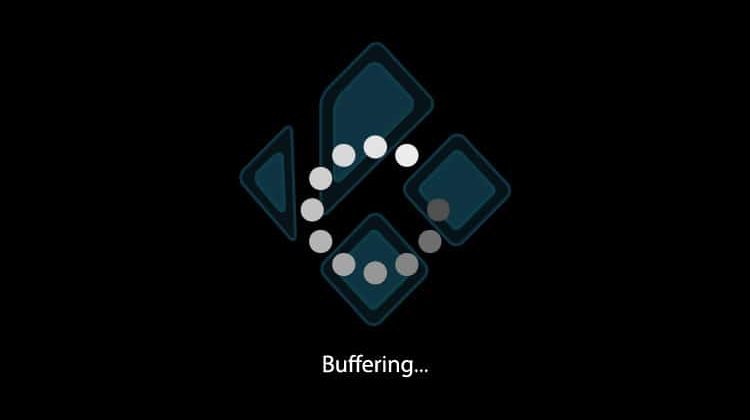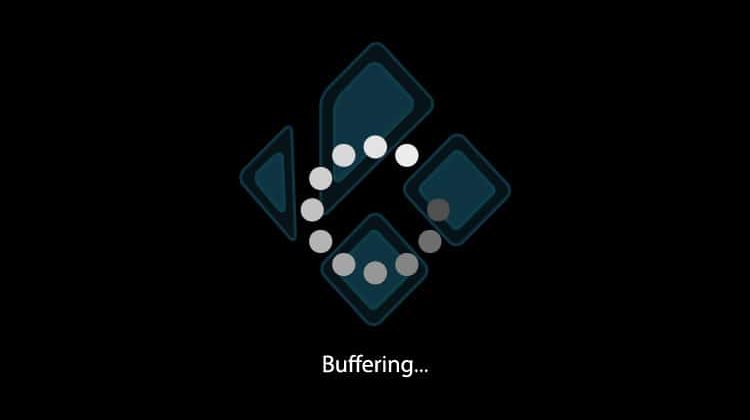How to Avoid Streaming and Buffering Issues on Kodi?

How to Avoid Streaming and Buffering Issues on Kodi?

Kodi, an exceptional media streaming tool but, unfortunately like any other streaming app, is subjected to streaming and buffering issues. This article is on how to solve and avoid them.
Kodi has millions of users across the globe and it has become the top-most preferred streaming media platform but this popularity has grabbed the attention of the ISPs and media tycoons. Streaming video content requires more bandwidth and high-speed internet connection whereas your ISPs continuously look for ways to limit the bandwidth. The frequency of buffering on Kodi is on the rise for various reasons. But there are some effective ways to avoid streaming and buffering issues on Kodi. This post aims at guiding you on how to do this, quick and easily.
Avoid Streaming and Buffering Issues
Evaluate the Speed of Your Internet Connection
Most of the time, speed throttling becomes the major reason for streaming buffering on Kodi. Even today, landline connections are often based on the copper wire instead of the fiber optic-based on your location. In some remote locations, you might even be forced to use satellite or even dial-up Internet which is only a fraction of the speed of broadband fiber. Make sure to check out the infrastructure the connection provider has. Opt for the fiber-optic lines to get maximum (labelled bandwidth).
When using streaming media apps, you basically need from 5mbps to 10mbps of download speed. Anything below 5mbps is going to frustrate you. Netflix is an exceptional case as it runs efficiently even with a connection speed of below 5mpbs but the same doesn’t apply for Kodi. You can check the internet speed via the Android or iOS Speed Test Apps.
If the speed is sufficient but still you are facing streaming buffering on Kodi then you need to install the best VPN service for Kodi. Remember, there are some temporary makeshift solutions but nothing works in the absence of a reliable VPN in place.
VPN Optimizes Streaming Speed by Preventing ISP Throttling
What makes a good VPN service so effective to minimize streaming buffering on Kodi is the highly efficient encryption algorithm. Basically, a VPN service protects traffic through an internet connection by directing it to its server with the help of a virtual tunnel. By using a VPN server that is close to the server of the media provider you can minimize buffering dramatically. In addition, this is a great way of bypassing geographic restrictions on content as you can choose a local IP address to mask your location. A good VPN Service like Surfshark has its servers in various regions and countries. By selecting a fast server from one of these countries, you can take advantage of the VPNs capabilities.
A key fact to note is that your ISP monitors your online activities. When you are streaming video content online, the ISP tends to limit the bandwidth and speed throttling becomes more and more evident. They even love to serve you with a legal notice telling you that there is a fair-use-policy in place which you need to respect. This is where a VPN definitely comes into the equation though. Using a good VPN like Surfshark ensures that your online activities are completely hidden and private. Even from your ISP!
There are free VPNs and paid VPNs as well. Free vs Paid VPN is a debate for the ages but the end result always favours using a paid VPN service with a bunch of exceptional features. Free VPN services have limited features and they have data restrictions as well. You see VPNs basically filter your content and if you’re struggling with buffering already, choosing a slow free VPN server is a guarantee for failure. Streaming videos requires larger bandwidth so it is essential to optimize your internet connection with a reliable VPN. The problem is that the free VPNs come with data caps. There are some VPNs that are known for keeping logs of your online activities and these are the services you always need to avoid.
Which is the best VPN service for Kodi?
Well, their scores of VPN services that claim to be the best VPN for Kodi and other streaming platforms. We have tested a variety of VPNs and we keep doing it to evaluate their performance from time to time. Based on our experience and evaluation, we are convinced that Surfshark is the best VPN for Kodi and other media streaming apps.
For sturdy connection, higher privacy level, efficient anonymity, and optimal data capacity, Surfshark stands out as the top choice for 2019 and 2020 because Kodi is going to face more criticism and streaming buffering than ever before. The best thing about Surfshark is that it doesn’t keep logs of your online activities. We have tested Surfshark with various official and third-party Kodi addons. It shows no signs of lagging and frustration.
Surfshark has a large network of servers worldwide. Its exceptional privacy and security features are frequently updated. On top of that, it offers a Free Trial so that you could evaluate the performance of its different features. Once you’ve decided that Surfshark is the best option for you though make sure that you sign up through us as we managed to get an exclusive 82% of Surfshark.
Save 82% of Surfshark, now!
Resolving Streaming and Buffering Issues with Kodi
In addition to the issues that a VPN will help resolve directly with streaming and buffering – ISP speed throttling – and issues with your overall network speed itself, there are several other things that you can check if you’re experiencing streaming and buffering issues with Kodi.
Check Your Device
Sadly at times, hardware issues might be the underlying problem. If you have another device available like a smartphone or tablet with Kodi installed and the stream does not buffer or lag, then the problem might be with your streaming device itself. If this is a problem you’re experiencing you might want to check out our guide on the best Android TV boxes to get a replacement that suits your requirements.
Try Using an Ethernet Cable Instead of WiFi
Being away from the router could also cause speed issues. The best solution is to use an Ethernet Cable, the best at hand for the moment is the CAT6 RJ45 as it is known for optimizing data transmission at high speed. WiFi while convenient and easy is also prone to interference from different devices in your home network. An ethernet cable will give your Kodi device direct access to your internet router ensuring that speeds are optimized.
Configure the HQ Scaler
Frame dropping and video stuttering are a couple of things that are similar to buffering on Kodi and you could use the following method to get rid of these problems. Frame dropping and video stuttering on Kodi happens when the software tends to automatically scale up the low-quality videos. You need to change the setting for HQ Scaling to stop automatic video scaling on Kodi.
- Launch Kodi and access the main menu
- Hit the Cog-Icon (Settings) and then opt for Player Settings
- Along with the left panel, focus on the bottom cog-icon and make sure to set it to Expert
- Focus on the right panel – there are Action, Playback, and Processing categories. You need to check Enable HQ scalers for scaling above. The software, by default, keeps it to 20%. The idea here is to bring it down, say 10% and then check the performance. If frame dropping still occurs, return to the settings and reduce it to 0%.
Clear the Video Cache with Exodus
You could try clearing the Video Cache. A common cause of streaming and buffering issues with Kodi is when the cache is too full, or when the cache is too small. A cache is basically a portion of memory where the video file sits before being delivered to your screen. If it is too small, then the system is constantly requesting a new file which can cause buffering. Basically think of it as the bar at the bottom of a YouTube video. When the playback reaches the level of the greyed out bar, it will buffer and catchup.
To use Exodus to resolve this issue, first make sure that you have it installed on your Kodi device. Next open Exodus and navigate to the Tools section. From here you can choose Clear:
- Cache
- Providers
- Search History
Once you’ve done this, your cache should be empty, and this should avoid Streaming and Buffering Issues on Kodi
Conclusion
Optimizing the speed of your internet connection should avoid streaming and buffering issues on Kodi. But don’t forget that if you are using Kodi without a reliable VPN, your ISP will keep making you suffer via speed throttling. Only a good VPN service like Surfshark, could let you avoid ISP monitoring and speed throttling. All other solutions are temporary and they may or may not work, depending on various other factors. But with a VPN in place, all other solutions tend to show some good results thanks to the optimized speed.
We hope have helped solve and Avoid Streaming and Buffering Issues!


